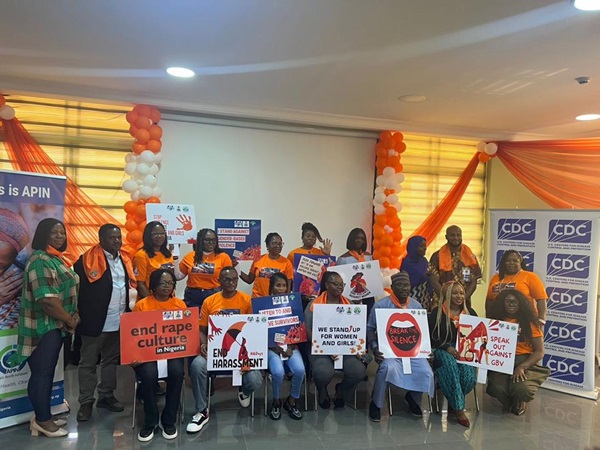
The U.S. Centres for Disease Control and Prevention (CDC) and the Nigerian government have intensified their efforts to address gender-based violence (GBV) through collaborative community interventions and systemic approaches.
Speaking at the bi-monthly U.S. CDC media roundtable in Abuja, CDC’s gender and GBV programme specialist, Mrs. Bukola Adewunmi reaffirmed the organisation’s commitment to tackling gender inequality and GBV in Nigeria.
“We believe everyone, regardless of sex, gender, socioeconomic status, or cultural background, deserves the highest attainable standard of health,” Adewunmi stated.
She outlined the CDC’s violence prevention framework, which combines facility-based interventions with community-driven approaches. “We screen everyone for GBV, provide free post-violence care services and refer survivors to appropriate support services,” she said.
The CDC’s strategy emphasises transforming harmful social norms and equipping individuals with essential skills to manage their health and well-being. Adewunmi called for collective efforts, noting that “together, we can create safer, more equitable communities for all.”
Ms. Titilope Omishina, a GBV survivor, shared her harrowing journey to healing during the session.
“In 2011, while preparing for my wedding, a required biomedical report revealed I was HIV-positive. The judge cancelled the wedding, and my fiancé’s family abandoned me,” she recounted.
Her diagnosis triggered a series of traumatic events, including rejection, depression, and a suicide attempt. During the COVID-19 lockdown, she stopped taking her medication, feeling hopeless.
However, with a friend’s encouragement, she sought help from the APIN Public Health Initiative, a non-governmental organisation promoting health and human rights in Nigeria.
“APIN provided me with medical care, counselling, and economic empowerment. They supported my antiretroviral treatment, helped with rent and gave me capital to start a business,” Omishina said.
Today, she mentors HIV-positive women and advocates for those facing similar challenges. “My son is in school, my health is stable, and I am grateful to APIN for their care and support. I want to help others overcome stigma and build better lives,” she added.
APIN deputy CEO, Dr. Jay Osi Samuels reiterated the organisation’s dedication to addressing GBV. “We have a team working across states, supported by CDC, to provide comprehensive GBV prevention and response services,” he said.
Samuels highlighted the collaboration between CDC, APIN, and the Nigerian government as a significant step toward strengthening health systems and addressing the social determinants of health.
“This partnership aims to improve service delivery and create safer, more equitable communities,” he said, noting that APIN has reached over 500,000 individuals with GBV prevention and response programs.
The event concluded with a unified call to action, urging stakeholders to prioritise GBV prevention and response. Stakeholders emphasised the importance of community engagement, public awareness campaigns, and systemic interventions to address the root causes of GBV.
The session also served as a reminder of the ongoing 16 Days of Activism Against Gender-Based Violence, an annual global campaign that began on November 25 and concludes on December 10.
By strengthening partnerships and integrating comprehensive services, the USCDC, the Nigerian government, and organisations like APIN demonstrate their commitment to ending GBV and promoting gender equality across Nigeria.

